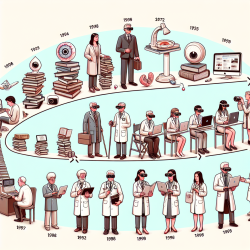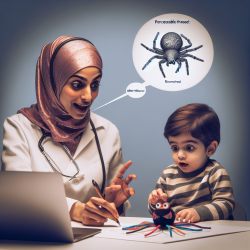The field of developmental cognitive genetics offers a fascinating intersection between psychology and genetics, providing insights that can significantly enhance educational practices for students with learning challenges. This blog post explores key findings from the research article "Developmental Cognitive Genetics: How Psychology Can Inform Genetics and Vice Versa" by Dorothy V. M. Bishop, highlighting how practitioners can leverage these insights to improve their skills and support diverse learners.
The Role of Genetics in Developmental Disorders
Developmental disorders such as Specific Language Impairment (SLI), developmental dyslexia, and autism have long been subjects of study due to their complex nature and significant impact on learning. Research indicates that genetic factors play a crucial role in the etiology of these disorders. However, identifying specific genes has proven challenging due to the complex interplay of genetic and environmental factors.
The research emphasizes the importance of moving beyond traditional diagnostic criteria to focus on underlying cognitive mechanisms. This approach helps clarify heritable phenotypes and provides a more nuanced understanding of developmental disorders. For instance, studies have shown that while both auditory deficits and phonological short-term memory issues occur in SLI, they have different origins—environmental factors are more influential for auditory deficits, whereas genetic factors are more critical for phonological memory issues.
Implications for Practitioners
For practitioners working with students who have developmental disorders, understanding the genetic underpinnings can inform more effective intervention strategies. Here are some practical ways to apply these insights:
- Differentiated Diagnosis: By recognizing that disorders like SLI are not homogenous, practitioners can employ more targeted diagnostic tools that consider underlying cognitive deficits rather than relying solely on surface symptoms.
- Personalized Interventions: Understanding the genetic basis of specific impairments allows educators to tailor interventions that address the root causes rather than just the symptoms. For example, focusing on phonological memory exercises for students with SLI may yield better outcomes than generic language interventions.
- Collaboration with Geneticists: Educators can benefit from collaborating with geneticists to stay informed about the latest research findings and incorporate this knowledge into their practice.
- Continued Professional Development: Engaging in ongoing training and professional development opportunities related to developmental cognitive genetics can enhance practitioners' ability to support diverse learners effectively.
The Future of Research and Practice
The research highlights the potential for further exploration into endophenotypes—quantitative measures of underlying processes—as a means to better understand the genotype-phenotype relationship. By focusing on these measures, researchers hope to find clearer connections between genetic factors and cognitive deficits.
This approach aligns with a broader trend towards personalized education, where interventions are tailored based on individual needs rather than one-size-fits-all solutions. As our understanding of developmental cognitive genetics continues to evolve, practitioners will be better equipped to support students in overcoming learning challenges.










